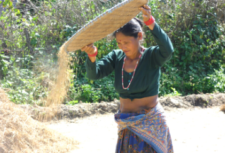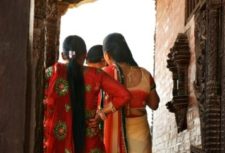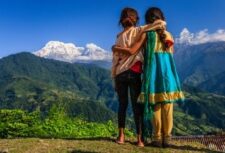Disclaimer: This article is more than 14 years old, and may not include the most up-to-date information or statistics. Please verify information with more recent sources as needed, and if you have any questions contact our Press Office.
17 September 2009
The former Hindu kingdom of Nepal has backed a draft UN guideline to recognise caste discrimination as a human rights violation. The guideline also received backing from the EU presidency and the UN High Commissioner for Human Rights.
State Minister for General Administration, Jeet Bahadur Gautam Darjee, outlined his government’s determination to eliminate the “scourge” of caste discrimination from Nepal and his country’s support for the draft guideline. The Minister was speaking in Geneva on 16 September 2009 at an Anti-Slavery International co-sponsored side event to the UN Human Rights Council session.
Caste systems involve the division of people by social groups, or castes, where unequal and hierarchical rights are assigned by birth, are fixed and are hereditary. While the division of a society into castes exists across the world, in South Asia caste discrimination is traditionally rooted in the Hindu caste system.
An estimated 260 million people, primarily in South Asia, are victims of caste discrimination. In South Asia, those who fall outside the caste system are called Dalits and are considered ‘untouchable’.
Dalits are frequently forced to work in industries considered ‘polluting’ by higher-caste people, including the cleaning of toilets and sewers and the removal of animal carcasses. Many Dalits are also forced into debt bondage by unscrupulous bosses and landlords and made to work without pay across South Asia.
Krishna Prasad Upadhyaya, Anti-Slavery International South Asia programme co-ordinator, said: ‘’Nepal has recognised that it is only by tackling caste discrimination that we can possibly eradicate slavery in South Asia. Caste discrimination forces Dalits to take part in dangerous and degrading work and locks generations into debt bondage.”
A statement from the office of the UN High Commissioner for Human Rights, Nevanethem Pillay, who is South African Tamil, said Nepal’s response is “a significant step by a country grappling with this problem itself” and encouraged other counties to follow Nepal’s lead.
“In supporting the UN guidelines, Nepal has taken a bold and very significant step. Now other countries must follow suit, especially India, where caste discrimination affects up to 200 million people,” said Rikke Nöhrlind, co-ordinator of the International Dalit Solidarity Network (IDSN), which works globally against caste discrimination.
India had unsuccessfully called for a vote on the draft guideline when it was presented to the UN Human Rights Council in March 2009. During a visit to New Delhi in the same month, the UN High Commissioner for Human Rights had called on India to show global “leadership in combating caste-based discrimination”.





